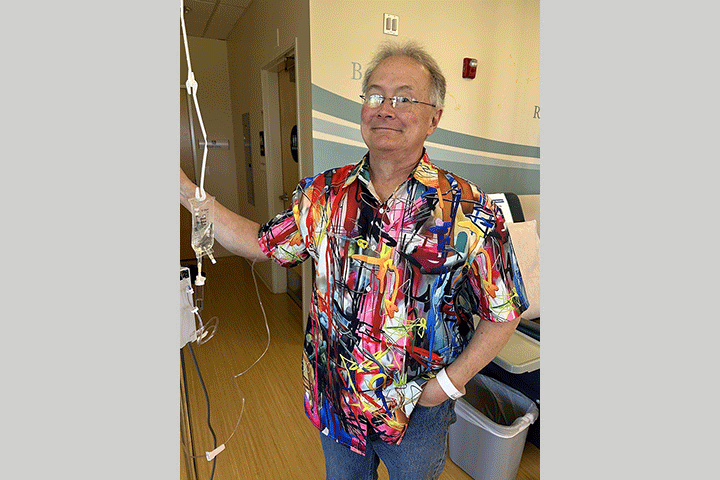Electric Fields to Enhance Pancreatic Cancer Chemotherapy

Can electric fields aimed at a tumor make standard chemotherapy more effective against pancreatic cancer?
A wearable device that can send electric fields to tumors is being tested as part of a clinical trial for locally advanced pancreatic cancer. The trial compares standard, first-line chemotherapy with standard chemotherapy plus the electric fields device, to see if it is safe and effective at shrinking the tumor.
How Electric Fields Affect Tumors
Researchers found that low-intensity alternating electric fields can interfere with the functioning of electrically-charged components of cells, disrupting cell division and leading to possible cell death. Because tumors grow more rapidly than healthy cells, exposure to these electric fields may primarily target tumor cells, which grow faster. This, in turn, may slow or stop tumor growth.
The chemotherapy used in this trial is gemcitabine plus nab-paclitaxel (Abraxane). Gemcitabine is converted into two metabolites that cause cell death. One reduces the number of building blocks necessary to make DNA; the other shortens the DNA strands. Nab-paclitaxel inhibits cell division and promotes cell death.
Using Electric Fields and Chemotherapy
All participants in this trial will be randomly assigned to one of two groups. The first group will receive standard chemotherapy with gemcitabine and nab-paclitaxel, plus a battery-operated device to provide the electric fields. The device includes four pads of electrode arrays that are taped to a participant’s abdomen, sides, and back. The pads are attached to the device, which is portable and wearable.
The second group will receive standard chemotherapy only. Researchers are comparing the safety and overall survival of the two groups.
We encourage you to consult your physicians for clinical trials that may be right for you. The website ClinicalTrials.gov provides more details about this trial as well as many others. You can visit the Let’s Win Trial Finder for a listing of all active pancreatic cancer clinical trials.
This trial remains active but is no longer recruiting.






